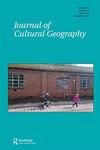我们如何进行社区园艺?:来自南非开普敦城市园丁的草根视角
IF 0.9
Q3 GEOGRAPHY
引用次数: 2
摘要
都市农业具有众多的环境、经济和社会效益。然而,它往往受到全球南方城市参与有限的阻碍。本文就如何增加城市农业活动的吸收提供了自下而上的观点。它借鉴了开普敦米切尔平原低收入社区的城市园丁的观点。这种混合方法结合了问卷调查、对城市园丁的半结构化访谈、对民间社会行动者和一名国家官员的访谈。结果表明,气候和土壤条件是城市农业发展的主要阻碍因素。然而,关于都市农业的社会和环境效益的社区对话可以在增加对都市农业和粮食的吸收和促进更广泛的对话方面发挥关键作用。该文件为未来的干预措施提供了建议,旨在促进城市农业,并支持开普敦和其他非洲城市低收入社区的行动者。本文章由计算机程序翻译,如有差异,请以英文原文为准。
How do we get the community gardening?: grassroots perspectives from urban gardeners in Cape Town, South Africa
ABSTRACT Urban agriculture offers numerous environmental, economic, and social benefits. However, it is often hampered by limited engagement in cities of the global South. This article offers bottom-up perspectives on how to increase the uptake of urban agriculture activities. It draws on urban gardeners’ perspectives in the low-income neighbourhood of Mitchells Plain, Cape Town. The mixed-methods approach combined a questionnaire survey, semi-structured interviews with urban gardeners, and interviews with civil society actors and a state official. The results indicate that climate and soil conditions are major deterrents to urban agriculture. However, community dialogues about urban agriculture’s social and environmental benefits could play a crucial role in increasing uptake and in facilitating conversations about urban agriculture and food more generally. The paper offers recommendations for future interventions seeking to promote urban agriculture and support actors in low-income neighbourhoods in Cape Town and other African cities.
求助全文
通过发布文献求助,成功后即可免费获取论文全文。
去求助
来源期刊

Journal of Cultural Geography
GEOGRAPHY-
CiteScore
1.70
自引率
22.20%
发文量
15
期刊介绍:
Since 1979 this lively journal has provided an international forum for scholarly research devoted to the spatial aspects of human groups, their activities, associated landscapes, and other cultural phenomena. The journal features high quality articles that are written in an accessible style. With a suite of full-length research articles, interpretive essays, special thematic issues devoted to major topics of interest, and book reviews, the Journal of Cultural Geography remains an indispensable resource both within and beyond the academic community. The journal"s audience includes the well-read general public and specialists from geography, ethnic studies, history, historic preservation.
 求助内容:
求助内容: 应助结果提醒方式:
应助结果提醒方式:


